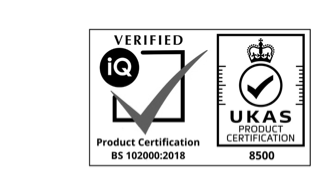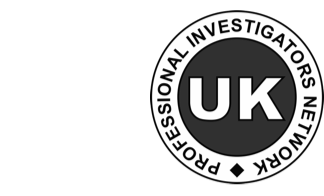When it comes to an employee investigation, there are very important questions that may arise. For instance, what do allegations mean, what are the chances of winning a grievance, and how does the burden of proof in a criminal context and the burden of proof in a civil context differ? Read on to find out the answer to these questions and how a private detective can offer expert support.
What do allegations mean?
Allegations are claims that another person has done something wrong, initially without giving proof. When it comes to employment, this could be anything from a criminal act (such as stealing stock) or something less severe. For example, a question that often pops up is “Is it possible to face disciplinary action for making derogatory remarks about one’s supervisor?” The answer to this question will depend on the severity and nature of the circumstances, although the process required to reach a conclusion will usually follow the stages listed below.
Due to allegations coming in all shapes and sizes, burden of proof is required in order to ensure that an unfair dismissal doesn’t occur.
What is the Burden of Proof in the UK?
The Burden of proof is a legal standard that requires parties to present sufficient evidence to support a claim or argument. It is most commonly only required of one party in a claim, which in many cases is the party that is initiating the claim. They carry the burden of proof and must be able to demonstrate that the claim is valid. For example, a business may consider using CCTV evidence at a disciplinary.
The purpose of the burden of proof standard is to make sure that legal decisions are determined based on facts rather than speculation or assumptions. Parties bringing a case or lawsuit to the court must be able to support their claims with evidence, whether physical or otherwise, so that the judge can consider if there is credibility to the claim. When the employee has evidence, they have better chances of winning a grievance case.
The Burden of Proof in Criminal Law
In criminal cases, the burden of proof typically lies with the prosecution, who are responsible for proving their allegations beyond all reasonable doubt. In order for a defendant to be convicted, the prosecution’s evidence must be strong enough to remove any reasonable doubt in the judge’s or jury’s mind that the defendant is guilty of the crime with which he or she is charged. This is why the burden of proof is higher in criminal cases.
Beyond all reasonable doubt is a higher standard of proof than the balance of probabilities, which is typically used in civil matters, and is therefore usually reserved for criminal cases where the stakes (someone’s life) are considered more serious and in need of a higher threshold of proof.
The Burden of Proof in Employment Law
In employment law, the burden of proof is the responsibility of the individual making the case, which may be the employer or the employee. They must be able to prove on the balance of probability under employment law that his or her claim is truthful. The evidence needs to be viewed as more likely than not to have occurred to obtain judgement in their favour. If the claimant is able to satisfy the balance of probabilities under employment law for all of the facts required to prove the cause of action, their case will be successful.
The seriousness of the claim will be a factor that will be considered when assessing the probabilities. To whatever extent is appropriate in the particular case, the more serious the allegation is, the less likely it is that the event occurred and, therefore, the stronger the evidence will need to be to conclude that it is found on the balance of probability.
This does not mean that the standard of proof needs to be higher for more serious claims, but rather the probability or improbability of the event itself will be taken into account when assessing the probabilities and determining whether, on balance, the event took place.
When to Hire a Private Employee Investigator
Employees are the lifeblood of any business. Without them, there is no business.
It can cost both time and money to source, interview, hire and train a new member for your team, and you want to know that you’ll get someone you can rely on, and who wants to support your company in return.
But what if you start to suspect that something is not quite right?
What do you do if an employee is acting suspiciously?
In the first instance the most likely response is to speak with the employee about the situation or conduct an investigation hearing to establish what the likely cause is.
This isn’t always possible as the severity of some issues may require immediate action and disclosing an allegation or suspicion to an employee without sufficient evidence can not only be detrimental to the investigation but also leave an employer at risk of claim.
For example, if an employee was guilty of gross misconduct by stealing stock, you would likely have grounds for summary dismissal but you would need sufficient evidence of this, otherwise you may be liable for a wrongful dismissal claim.
If you confront the employee based on suspicion, they may simply change their tactics or stop stealing for a short period of time. In this instance, hiring a private investigator may provide you with the evidence you need.
Hire a professional Employee Investigator.
A private employee investigation is a great way for business owners and employers to investigate problematic staff in a discreet and legal manner. We can help you to gather information and create robust reports which are admissible as evidence in court.
This may involve services such as surveillance and person tracing, among others that are proportional to the actions of an employee. You’ll be kept up to date with our findings at every stage of the process as we work together to resolve the issue.
Reasons for Hiring a Private Employee Investigator
There are many reasons employers may want to use our employee investigation services.
You may have heard rumours about an absent employee working somewhere else (moonlighting) while receiving sick pay from you. Maybe you are concerned with a worker who is frequently taking sick leave or is off work for long durations at a time. Whilst there are many legitimate reasons for long-term absence from work, such as mental health issues and physical illness, this could point to a more serious problem with your employee, which may have negative consequences for your business.
It can be difficult to know how to proceed in these situations, as an incorrect accusation can be damaging to the relationship you have with your workers. We want to assume that they are indeed sick, and not violate their employment rights or rights to privacy. Through a professional employee investigation, you can find out whether an employee’s behaviour outside of the workplace is consistent with their claims.
By sharing your concerns with us, we can launch an employee investigation to establish the truth, and where there is evidence of misbehaviour, provide the evidence necessary to take action and confront the employee.An employee investigation regarding false claims about your business can also be undertaken using similar services. Health and Safety falls under criminal law rather than employment law, so accusations about poor health and safety at the workplace can leave not only the business owners but also decision makers at risk of prosecution and heavy fines. We can help you to gather sufficient evidence to prove beyond all reasonable doubt that your claim is accurate. Give us a call to find out if hiring a Private Detective is right for you.

 Surveillance
Surveillance Matrimonial Investigations
Matrimonial Investigations Bug Sweeping
Bug Sweeping GPS Vehicle Tracking
GPS Vehicle Tracking Lie Detector Test
Lie Detector Test Person Tracing
Person Tracing Employee Investigations
Employee Investigations Asset Tracing
Asset Tracing Fraud Investigations
Fraud Investigations Injury & Insurance Investigations
Injury & Insurance Investigations







